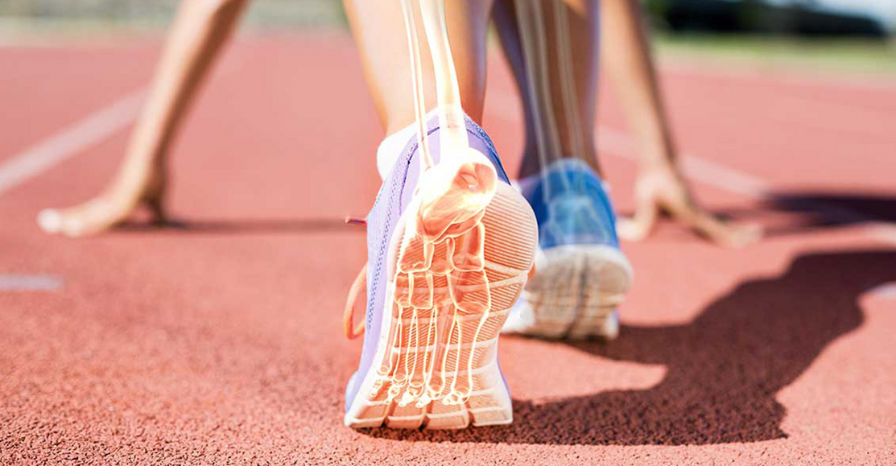
Bone health & athletes
BONE & JOINT HEALTH |You may think of your bones as stable, rigid and steady, but they are actually in a state of constant flux, continuously breaking down and rebuilding. In the early ages of life, they rebuild faster than they break down as the skeleton grows. However, as we age, bones take longer to heal and rebuild, which is why keeping bones and joints healthy especially for athletes is critical for long-term performance.
Let us look at some factors that promote healthy bones and joints.
Calcium:
While acute calcium deficiency is rare, many athletes do not consume enough calcium to maximise lifelong bone health. In today’s age, calcium deficiency can be partially blamed for the replacement of popular beverages such as coffee and soft drinks. To further add to this problem, we lose calcium on a daily basis through our skin, nails, hair, sweat and urine. Our body cannot produce lost calcium, so if we do not get enough calcium through our diet to meet our body’s daily requirements, our body begins to leach calcium from our bones. This eventually leads to bone loss, low bone density and an increase in fractured bones. As an athlete, the daily calcium requirement ranges from 1000mg to 1500mg depending on gender and age. Calcium deficiency can manifest itself in muscle cramps and spasms. If you find it difficult to consume enough calcium on a daily basis, you opt for a calcium supplement. Unived’s CalDveg is a calcium supplement derived from algae and it features plant-based vitamin C, vitamin D3, and vitamin K2-7, and algae magnesium with trace minerals. Each serving of CalDveg provides 500mg of natural calcium.
Vitamin D:
Vitamin D is one of four fat-soluble vitamins (A, D, E, and K), and requires dietary fat for absorption in the body. We store fat-soluble vitamins in our body with the exception of Vitamin D. Although humans evolved to make plenty of vitamin D when our skin is exposed to sunlight, this is not always a reliable approach in the modern world. Smog, clouds and sunscreen all interfere with production of vitamin D. Vitamin D is widely known for its role in calcium absorption. Additionally, research strongly suggests that vitamin D plays a key role in injury prevention, improved neuromuscular function, increased type II muscle fibre size, reduced inflammation, reduced risk of stress fractures, stronger immune system, and improves overall health[1]. As athletes without adequate vitamin D levels, the absorption of calcium is only 10-15%, compared to the standard 30%[1]. Getting enough sun exposure daily can be difficult during winter and if you work in an office environment. Hence, supplementing your daily vitamin D requirement with a supplement providing at least 1000 I.U.-2500 I.U. is highly recommended in order to maintain healthy vitamin D levels.
Alkaline diet:
A low acidic or alkaline diet is one where alkaline (basic) foods are emphasised while acidic foods are avoided or limited. The idea behind it is to reduce the acid load on the body. When the pH of our blood tends more towards acidity, there are mechanisms in place to bring the pH back to the desired neutral level of about 7.4; one of these mechanisms includes drawing calcium out of our bones, which may lead to weaker bones or even osteoporosis. Thus, it is advisable for athletes to include alkalising foods as a part of their daily diet such as vegetables and fruits, certain protein foods like almonds, chestnuts, and tofu, some spices like cinnamon, curry, ginger, mustard, and sea salt. You can even opt for an alkalising powder blend like Unived’s Daily Supergreens, which includes alkalising super foods like spirulina, chlorella, spinach, and wheat grass.
We all know that calcium is important, but there is a lot more you can do in terms of nutrition to ensure your bones stay healthy throughout your lifetime. For athletes, it becomes even of greater importance to ensure adequate consumption of alkaline calcium rich food and sun exposure, in order to maintain strong healthy bones. If you do feel like you are not getting enough calcium or vitamin D, get your levels check and start supplementing.
References:
1. https://www.racesmart.com/blog/2016/11/sunshine-vitamin-calcium-and-bone-health/

